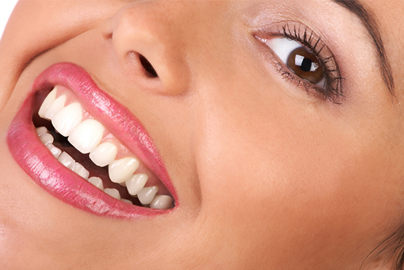Category Archives: Tips From Your Dentist
Accidents Happen: Emergency Dental Care
 Imagine enjoying a wonderful holiday break with your family. As you sit down to have a meal together, you experience an unpleasant surprise. When you bite into your food you feel a cracking sensation, followed by a sharp pain in your mouth. As the stinging in your mouth continues to worsen, the reality of what has just happened sets in; you have just broken a tooth and need emergency dental care!
Imagine enjoying a wonderful holiday break with your family. As you sit down to have a meal together, you experience an unpleasant surprise. When you bite into your food you feel a cracking sensation, followed by a sharp pain in your mouth. As the stinging in your mouth continues to worsen, the reality of what has just happened sets in; you have just broken a tooth and need emergency dental care!
Unfortunately, this make-believe scenario has been a reality for many people; when you break a tooth it’s often a sudden, unplanned problem that delays any plans you may have, because all you can think about is getting out of pain!
Who will you call when you need emergency dental care?
At GPS Dental we are prepared to assist our patients when a dental emergency occurs. When patients call in this type of scenario, we always do our best to accommodate same day emergency appointments.
There are normally two reasons for emergency dental care, restorative and cosmetic.
We provide restorative emergency dental care to help our patients to get out of pain as quickly as possible. There are cosmetic reasons for requiring an emergency visit as well. Perhaps you have a presentation to give, or an important meeting to attend, or maybe child has a school photo in the next couple of days.
These are both valid and understandable reasons for requesting an emergency visit, and here at GPS Dental we are willing to help address these unexpected issues when they arise.
Sports Injuries can cause a dental emergency.
Injuries to the mouth and teeth during physical activity and playing sports are easily prevented with a custom-made mouthguard by the staff at GPS Dental.
A mouthguard is an essential piece of athletic gear that should be part of your standard equipment from an early age. Studies show that athletes are 60 times more likely to suffer injury to the teeth if they’re not wearing a mouthguard.
Broken teeth and injuries to your lips, face, jaw or tongue can be minimized, because mouthguards help cushion a blow to the face since they are typically covering the upper teeth.
The best type of mouthguard is one that has been custom-made and fitted for your mouth by Dr. Skrobanek and his team at GPS Dental. If you wear braces or another fixed dental appliance on your lower jaw, your dentist may suggest a mouth protector for these teeth as well.
If you have a removable appliance or retainer, do not wear it during contact sports.
Other Reasons for needing emergency dental care:
- Knocked Out Tooth
- Chipped or Broken Tooth
- Partially Dislodged Tooth
- Abscess
- Toothache
- Lost Filling
- Lost Crown
Related article: Handling Dental Emergencies
You may not be able to anticipate when a dental emergency will happen; however, you can rest assured that you will receive swift expert emergency care when you call our office.
Dr. Gary P. Skrobanek and his experienced, friendly team at GPS Dental offer affordable family dentistry and gentle dental care in the San Antonio, TX area. Our office is conveniently located and offers early morning appointment times Monday through Friday to meet your needs. At GPS Dental, we provide most dental services, from family and general dentistry to dental implants, sleep apnea, TMJ / TMD Treatment, cosmetic dentistry and much more. We accept most dental insurance plans and offer affordable financial solutions for any budget. Call us at (210) 633-3477 to make an appointment.
How to Ease Dental Anxiety for Kids
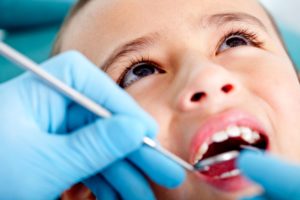 So many of our patients ask us how to ease dental anxiety for their kids. We’d like to offer 3 simple tips.
So many of our patients ask us how to ease dental anxiety for their kids. We’d like to offer 3 simple tips.
For many years, a trip to the dentist has been a stressful for both adults and children. The stereotype of a dental office being a scary place in the past was true for many reasons. However, over the years advancements in dental technology and the high number of prominent dentists with offices that are calm and soothing, instead of sterile and intimidating have shifted this stereotype out of our reality. Now this has become a thing of the past.
Although the fear or anxiety of visiting the dentist is relatively small among adults today, for some children this fear still remains and gives them anxiety. It can cause visiting the dentist to be a very stressful ordeal for those children and their parents. We encourage parents of young children to take an active role to help manage and reduce this fear at an early age.
To help, we have comprised a list of three useful tips and ideas that may help you in the process when trying to figure out how to ease dental anxiety. We want you and your child to enjoy a stress-free experience when visiting the dentist’s office.
1. How to Ease Dental Anxiety: Why start kids early?
In order to prepare your child for what to expect when visiting the dentist, the most important step is to simply start scheduling dental appointments at an early age. Many experts that offer dentistry for kids agree that parents should schedule the first appointment before the child’s first birthday.
Scheduling their first dental appointment and continuing regular checkups is very important for two distinct reasons:
- To evaluate and prevent issues that may occur at an older age. This may seem unnecessary when the child is still very young and beginning to get baby teeth; however, this gives a dentist the chance to observe and assess the developing teeth. This is an important and proactive step in dentistry for kids and sparing your child from future issues or discomfort that may arise.
- To introduce the dentist to the child and the dental office. If a child does not receive regular dental care, then a visit to the dentist may seem strange and frightening; as they are not familiar with the situation. By getting your child accustomed to making regular trips to the dentist from an early age, it allows them to become comfortable with the atmosphere of the dental office which will likely make a huge difference in reducing any fear or anxiety.
2. How to Ease Dental Anxiety: Leading by example, how you can set the tone.
In the eyes of a young child, there is no greater role model than that of a parent or guardian. If your child is fearful when visiting the dentist, instead of telling them how they should behave, perhaps it would be better to show them instead. This is easy; bring your child with you during one of your dental appointments, so they can watch you. They’ll see you, the most important person in their world, set an example of how to act when you visit the dentist. By showing your child there is nothing to fear during a dental appointment, your child is much more likely to associate the dental office with positive feelings rather than negative.
3. How to Ease Dental Anxiety: Eyes on the prize!
Rewards can make the difference. As you already know, providing a little added incentive is always an effective motivational tool to encourage someone to overcome an obstacle. This is particularly true with children; when facing an obstacle or challenge if they have fear, anxiety or lack the motivation to push through.
If your child remains genuinely fearful of going to the dentist, consider turning this fear into a challenge for them. Perhaps your child has a particular place they would like to go, (such as an amusement park or the zoo) or maybe they desire a certain toy or item? If a reward is promised for good behavior during his or her dental appointment, then this may provide your child with the motivation they need to face their fears. Keeping their eye on the prize can also add a certain amount of distraction at the excitement and anticipation of receiving their reward.
While the historic reputation of a trip to the dentist being a scary experience for kids may still be a common stereotype, with help from parents, this idea can continue to become something of the past, as the future of dentistry for kids continues to grow brighter with every smile.
Dr. Gary P. Skrobanek and his experienced, friendly team at GPS Dental offer affordable family dentistry and gentle dental care in the San Antonio, TX area. Our office is conveniently located and offers early morning appointment times Monday through Friday to meet your needs. At GPS Dental, we provide most dental services, from family and general dentistry to dental implants, sleep apnea, TMJ / TMD Treatment, cosmetic dentistry and much more. We accept most dental insurance plans and offer affordable financial solutions for any budget. Call us at (210) 633-3477 to make an appointment.
Has Your Sweet Tooth Gone Sour?
Many people know that eating too much of anything is a bad idea; the old adage “everything in moderation” should definitely apply to your sweet tooth! Cutting down on sugary snacks is one way to keep your pearly white smile. Unfortunately, sometimes it can go sour and tooth decay can happen. Do you know how?
Can My Sweet Tooth Cause Tooth Decay?
When you eat sugar, there is a series of events that begin to happen as soon as you pop that sweet treat in your mouth. But sugar alone does not cause tooth decay. If your teeth are not properly cleaned, the tooth enamel can begin to wear down and cavities can form.
How do Cavities Develop?
Your mouth is filled with hundreds of bacteria, many of which benefit the health of your teeth; however, some are harmful. These harmful bacteria feed on the sugars that are left on your teeth when they are not brushed after that sugary snack. They create acid that destroys your tooth enamel. Your tooth enamel is the shiny, outer layer that protects your teeth; if this layer becomes compromised, decay and cavities can form and leave tiny holes in your teeth. If the cavity isn’t treated properly, additional issues, such as gum disease and tooth loss can occur. See how your sweet tooth can go sour, quickly?
How do You Prevent Cavities?
- Brush your teeth regularly, especially after sweet treats and before bedtime
- Make regular trips to visit your dentist
- Eat healthy foods that are rich in fiber
- Avoid sugar when possible (this includes snacks, gum and beverages)
Preventing Tooth Decay:
Preventing the unhealthy aftermath of your sweet tooth is important and the best way to do that is to take proper care of your teeth. Limiting the sugar intake in treats and snacks is obvious, but when we talk to our patients, we find out that sometimes the sugars sneak up on them (and they don’t even realize it)! That’s right, gum and beverages are just as guilty at leaving their marks on your teeth. If you drink soda, it doesn’t make any difference whether it’s sugar-free or not because these drinks will leave acid on your teeth that begin to wear down the enamel too. Opting for healthy choices, like water or milk are always better options for your oral health (just make sure they’re not “flavored water”… see how sneaky??)
Brushing and flossing away the plaque (twice each day) will make it harder for a cavity to develop because you are strengthening your enamel at least twice every day. By adding regular visits to your dentist for thorough dental exams, you’re well on your way to preventing cavities and keeping your mouth healthy.
Dr. Gary P. Skrobanek and his experienced, friendly team at GPS Dental offer affordable family dentistry and gentle dental care in the San Antonio, TX area. Our office is conveniently located and offers early morning appointment times Monday through Friday to meet your needs. At GPS Dental, we provide most dental services, from family and general dentistry to dental implants, sleep apnea, TMJ / TMD Treatment, cosmetic dentistry and much more. We accept most dental insurance plans and offer affordable financial solutions for any budget. Call us at (210) 633-3477 to make an appointment.
Teeth Whitening and Smoking … A New Year’s Resolution?
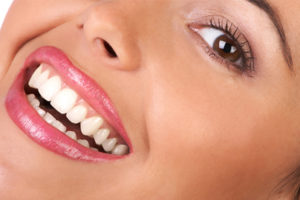
As a New Year begins; many people find themselves with one or several goals to accomplish in the New Year. These goals are traditionally known as New Year’s resolutions and are often used as a means for personal reflection and self-improvement. Two of the most common resolutions that people have involve the improvement of one’s overall health and making better decisions financially. However, if you are a smoker, then quitting smoking is one resolution that would significantly improve both of these aspects in your life. Quitting smoking remains one of the primary New Year’s resolutions on the list of many people nationwide. And when it comes to teeth whitening and smoking, we can help you achieve a healthier smile.
What smoking does:
For many years, some of the serious long term health effects of tobacco smoke on the lungs and throat have been well known to the general public. However another serious, but often overlooked health concern is smoking’s effect on oral health. Due primarily to the excessive amount of tar in cigarettes, many smokers will notice their teeth developing a yellowish hue, as opposed to a healthy white smile. Unfortunately, this yellow staining will become predominantly worse over time. And in the case of heavy smokers, continue to stain the teeth until they begin taking on a sickly brown appearance. Obviously this can cause a great deal of unwanted attention and embarrassment for the smoker suffering from this condition; often leading the smoker to experience a certain amount of anxiety in social situations.
Another concerning and potentially embarrassing problem that occurs as a result of cigarette smoking is gum disease. As you probably know, all people have a certain amount of bacteria in their mouth at any given time. While this is normal, having too much bacteria in one’s mouth (especially if it happens frequently) can cause an imbalance. It’s this frequent imbalance of bacteria that causes the gums to develop infections, which if serious can permanently damage the smoker’s gums; ultimately resulting in the development of gum disease. Although in early stages, gum disease may present as simply foul and unpleasant breath, as the disease progresses it can lead to much more serious scenarios such as tooth decay, tooth loss, oral nerve damage, or permanent jawbone damage.
Related Article: Show Your Teeth Some Love: Gum Disease & Your Heart
A third and final condition to result from tobacco smoking is that of oral cancer. As you can probably guess, out of all of these health concerns, oral cancer is by far the most severe as approximately 7,500 deaths will occur in the United States annually either due to or related to complications from oral cancer. These staggering numbers typically stem from the rapid progression of the disease, and often the failure of the individual to seek the proper diagnosis and treatment within the early stages of the disease.
Related Article: Why We Perform Oral Cancer Screenings during Dental Checkups
How dentists combat smoking:
While a smoker’s fight to preserve their oral health may seem like a daunting task, there are but few greater allies in this battle than that of your dentist. How do teeth whitening and smoking relate to each other? Although you might not realize it, but when you visit your dentist for a teeth whitening or to just simply have a routine cleaning, your dentist will also simultaneously preform an oral screening as well. This is a crucial step in treating or preventing oral cancer and other afflictions caused by smoking as they often go undetected until it’s too late.
Teeth whitening and smoking: Another effective but often overlooked service that your dentist can provide you with is the actual process of teeth whitening. In whitening a patient’s teeth, a dental practitioner will apply fluoride as a varnish or gel to the teeth, thus whitening and ultimately eradicating signs of damage caused by either smoking or even just a sweet tooth. While this might sound superficial in nature, some dentists find that once a patient who smokes is able to see what their smile would look like without the damaging effects of smoking, only then do they find the motivation and drive to reduce their tobacco smoke intake, and eventually quit altogether. See, teeth whitening and smoking are definitely related!
What to remember:
Although New Year’s resolutions such as exercising more often or getting a promotion at work are certainly admirable goals to have; if you’re a smoker then quitting smoking should certainly be on that list as well. Remember a New Year brings new opportunity to improve your quality of living, and what better way to do that than to improve your health and finances by ridding yourself of this worrisome habit.
If you’re a smoker and want to achieve a whiter, brighter, healthier smile this year, talk to Dr. Skrobanek and his expert team about teeth whitening and smoking. Contact GPS Dental at (210) 633-3477.
Having Trouble Sleeping? Talk to Your Dentist!
 Don’t think about your dentist when it comes to sleep problems? That’s no surprise. But it’s very likely that he or she may be able to help, especially if your problem is related to sleep apnea.
Don’t think about your dentist when it comes to sleep problems? That’s no surprise. But it’s very likely that he or she may be able to help, especially if your problem is related to sleep apnea.
Sleep apnea is one of the most common causes of sleep disturbance and it affects over 20 million people in the United States alone. Getting a good night’s sleep is important to every facet of our lives. If we don’t get the amount we need, we can suffer not only physically, but mentally as well. Here’s how the experts at GPS Dental can help:
How Oral Appliances Help Sleep Apnea Patients
At GPS Dental, Dr. Skrobanek is specially trained to custom fit oral appliances, more commonly called mouth guards, that help control snoring and sleep apnea problems. If you suffer from sleep apnea, the soft tissues and muscles in the back of your mouth and throat relax to the point of collapse, thus blocking the airways and reducing oxygen intake. The body then awakens just long enough to resume normal breathing and then drifts back to sleep. Most of the time, the person doesn’t even realize they are having problems, other than how badly they feel during the day. It may feel as if they haven’t slept at all.
Symptoms That Suggest Sleep Apnea
It’s important to ask yourself if you suffer from any of these symptoms. If so, come talk to Dr. Skrobanek and get fitted for an oral appliance you can wear at night.
- Headaches upon waking in the morning
- Alarming fatigue levels
- Memory loss
These are bad enough on their own, but if sleep apnea is not addressed, other long-term health issues can occur such as:
- High blood pressure and heart disease
- Acid reflux and indigestion
- Diabetes
- Stroke
- Erectile Dysfunction
Oral appliance therapy is a research-backed treatment option that’s available should you find that you suffer from sleep apnea. The appliance fits like a retainer. Many have already been approved by the FDA as an appropriate treatment for this disorder. These custom fitted mouth guards work to keep your airway unobstructed during the night, which allows you to breathe normally and sleep much more deeply than before.
If you are experiencing any of the symptoms of sleep apnea, come talk to Dr. Skrobanek about a custom mouth guard. Contact GPS Dental at (210) 633-3477.
The Dirty Dozen – 12 Symptoms That Might Signal Oral Cancer
 While most dental issues probably won’t kill you, oral cancer is a condition that could be life-threatening if it isn’t spotted early. If you smoke, drink alcohol, or have a family history of cancer, you are at most risk for developing oral cancer. It usually presents itself as a persistent sore or growth in the mouth. Early detection and timely treatment are key to catching cancer early and treating it effectively. The team at GPS Dental wants you to know what to look for, so we put together this list.
While most dental issues probably won’t kill you, oral cancer is a condition that could be life-threatening if it isn’t spotted early. If you smoke, drink alcohol, or have a family history of cancer, you are at most risk for developing oral cancer. It usually presents itself as a persistent sore or growth in the mouth. Early detection and timely treatment are key to catching cancer early and treating it effectively. The team at GPS Dental wants you to know what to look for, so we put together this list.
Look for These Possible Oral Cancer Indicators
Have you experienced any of the following symptoms of oral cancer?
- Sores, lumps or thick patches in or around your mouth or throat
- Red or white lesions on your lips, or in your mouth
- The feeling of a lump in your throat
- Swellings that make dentures uncomfortable
- Numbness, pain or tenderness in your mouth or tongue
- Pain in one ear without loss of hearing
- Trouble moving your jaw or tongue, problems chewing, talking, or swallowing
- Loose teeth with no apparent cause
- Persistent sore throat or hoarseness
- Unexplained bleeding in the mouth
- Dramatic weight loss
- Enlarged lymph nodes in the neck
Some of the symptoms that can signal oral cancer can look like other conditions, so it’s important to get a skilled professional’s opinion. Recent research has also determined that the HPV virus is a leading new cause of oral cancer in non-drinking non-smoking young adults who are sexually active.
Our Oral ID™ Technology Helps Us Catch Oral Cancer Earlier
At GPS Dental, we include an oral cancer screening with every examination. We use Oral ID™during the oral exam. This “fluorescence technology” allows the doctor to identify any suspicious areas at an earlier stage, thus saving lives. Plus, it’s absolutely painless for our patients.
If you notice any of these symptoms, don’t wait, contact us. Come see us at GPS Dental and let Dr. Skrobanek take a look at it. He will tell you if it requires further examination by a specialist. Call us at (210) 633-3477 to make an appointment or ask questions.
Snoring Is NOT Sexy! Your Dentist Can Help.
 He’s the perfect guy; thoughtful, loving, and caring. There’s just one problem — he’s a snorer! He snores so loud that you can barely sleep at night, and you don’t know how much longer you can go without sleep. Well, in actuality, both of you are probably not getting much sleep despite his loud testament to sleeping. Snoring can lead to restless sleep, daytime dysfunction and more. Luckily, the team at GPS Dental can help!
He’s the perfect guy; thoughtful, loving, and caring. There’s just one problem — he’s a snorer! He snores so loud that you can barely sleep at night, and you don’t know how much longer you can go without sleep. Well, in actuality, both of you are probably not getting much sleep despite his loud testament to sleeping. Snoring can lead to restless sleep, daytime dysfunction and more. Luckily, the team at GPS Dental can help!
What Causes Snoring?
According to the National Sleep Foundation, snoring is a problem that affects approximately 90 million Americans. Needless to say, many couples are going through the issue of one person being a very loud snorer.
Snoring is caused by the muscles in your throat and your tongue relaxing too much while sleeping, which causes the throat to become more narrow. The air going in and out of the throat then causes the characteristic sound of snoring. Snoring becomes more serious with age and is more common in overweight individuals and males.
What Are the Side Effects of Snoring?
While we may joke about our partner’s snoring, the side effects are no laughing matter. Sometimes, the walls of the throat can collapse completely, which can cause a cessation of air. When that happens, the person’s breathing stops and that’s never a good thing! This is known as sleep apnea and is a serious medical condition.
Oral Appliance Therapy
A really great solution for sleep apnea is oral appliance therapy, also known in simpler terms as a mouth guard. The GPS Dental team can custom fit a mouth guard to your jaw in a way that maintains an open upper airway even as the throat muscles relax. This allows you to breathe safely and comfortably throughout the night while also allowing your partner to get a restful night of sleep.
Oral Appliances Are a Great Alternative to CPAP Machines
Although CPAP (Continuous Positive Airway Pressure) machines prove to be the most effective way to treat advanced sleep apnea, studies have shown that half of all CPAP wearers cannot tolerate using their CPAP mask on a regular basis. Oral appliance therapy can be as or more effective than the CPAP mask for many of these individuals and is far more comfortable and acceptable for nightly use. Also, many medical insurance companies are now covering these appliances when a CPAP is not tolerable. Call and ask GPS Dental how they can help to determine eligibility for oral appliance coverage when a CPAP is just not working out.
How to End Snoring the Easy Way
Since over 100 oral appliances have received FDA clearance, it can be difficult to select the right one. Dr. Skrobanek has had special training and can recommend the device that is best for you. Also, note that oral appliance therapy is covered by many medical insurance plans so this may come at little to no out-of-pocket cost to you.
Read more about oral appliance therapy here. To see if you’re a candidate for a mouth guard contact us online or call us at (210) 633-3477.
Do You Hate Your CPAP Machine? Try This Simple Fix for Sleep Apnea
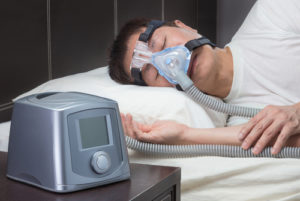 After the results of your sleep study, the sentence was in: CPAP, every night, life sentence.
After the results of your sleep study, the sentence was in: CPAP, every night, life sentence.
At first, you might’ve felt relieved. Grateful, even. At some point, some geniuses invented a machine that helps you sleep better, and could even save your life! What a great time to be alive, you might have thought at the time…
And then you brought the thing home, hooked yourself up, and revved it up. Maybe it wasn’t instant for you, but a day, a week, a month later, it dawned on you: You’re going to pour distilled water into this thing’s gaping maw, and listen to that rumbling, sucking sound, for years to come.
Do you absolutely hate your CPAP machine? Try this simple fix for sleep apnea!
Mouth Guards Can Prevent Sleep Apnea
The CPAP is, of course, a safe, tried-and-true solution to sleep apnea. But frankly, it’s a one-size-fits-all solution. Another less intrusive solution is a mouth guard. Your dentist can fit you for a custom mouth guard that provides the correct adjustments to jaw and tongue position that many sleep apnea patients need to sleep safely and healthily.
Related Read: How Can My Dentist Help My Sleep Apnea?
See, dentists know a thing or two about this particular part of the human body. They’re not just waiting around to clean your teeth or pop in a filling!
Are you tired of your noisy, uncomfortable CPAP machine? Are you looking for an alternative to ever getting one at all? Our experienced dental professionals can diagnose your issue, and fit you with a custom mouth guard to alleviate your sleep apnea. Give GPS Dental a call at (210) 633-3477.
Don’t Procrastinate with Tooth Extractions
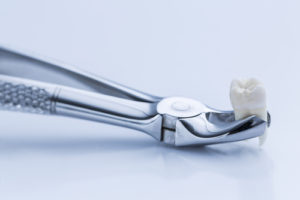
Permanent adult teeth are meant to last a lifetime. Unfortunately, sometimes even with good oral hygiene, regular dental visits, and preventative care, a tooth might need to be extracted. No one likes to have a tooth pulled, but often it is an unavoidable fact of life. All too often here at GPS Dental, we get calls from desperate patients who have put off having a tooth pulled and then need an emergency extraction because the tooth has broken, become infected, or otherwise put them in severe pain. We don’t like to see our patients suffer!
3 Main Reasons for Tooth Extractions
- Overcrowding — Frequently teeth shift over time and become overcrowded. Often during early adulthood there is simply not enough room for all the adult teeth, such as wisdom teeth, to naturally erupt. Overcrowding is usually painful and can affect the appearance of your teeth as they shift. Tooth extraction frequently alleviates the discomfort and makes room for all the teeth in your mouth. In some cases, it also helps your bite align correctly. Frequently a dentist will extract teeth prior to affixing braces to a patient’s teeth to create room.
- Damage — Tooth damage occurs for a variety of reasons such as a sudden impact, excessive decay, or from a crack that may be caused from biting on something hard. If a tooth sustains excessive damage, sometimes the only option is to have the tooth extracted.
Related Read: Are Dental Implants Right for You?
- Infection — A decayed, cracked, or broken tooth often becomes infected as the pulp of the tooth dies and an abscess forms. In some situations, root canal therapy can be utilized to save the tooth. Unfortunately, if the tooth has been abscessed for a long period of time, or if the tooth is too badly damaged, a root canal will often fail and the only alternative is to extract the tooth.
Related Read: The Stress-Free Guide to the Top 3 Tooth Replacement Options
Unless You Like Pain, Get That Tooth Removed Quickly
Tooth extractions should never be taken lightly. All aspects of saving the tooth should first be evaluated. However, if a tooth cannot be saved, a timely extraction is highly recommended before the tooth becomes painful and causes an emergency situation.
If you have a problem tooth, please call GPS Dental at (210) 633-3477 to schedule an appointment with Dr. Skrobanek.
Are Dental Implants Right for You? What Makes a Bad Implant Candidate?
 No one likes missing teeth. When it comes to tooth replacement, you have options. Whether you are considering dental implants for cosmetic reasons or functional reasons, there are several factors you’ll want to keep in mind before making your decision. Let the experts at GPS Dental walk you through some circumstances that might mean an implant isn’t the best replacement option for you.
No one likes missing teeth. When it comes to tooth replacement, you have options. Whether you are considering dental implants for cosmetic reasons or functional reasons, there are several factors you’ll want to keep in mind before making your decision. Let the experts at GPS Dental walk you through some circumstances that might mean an implant isn’t the best replacement option for you.
Periodontal Disease
Simply put, you’re not a good candidate for dental implants if your gums aren’t healthy. Dental implants are connected through your gum tissue to the bones in your mouth. Unhealthy gums can result in your implants not properly fusing to the existing tissue in your mouth.
Related Read: The Best & Worst Parts of Getting Dental Implants
Bone Loss
Just as you need healthy gums for the implants to be placed, you need healthy bones under your gums in order for the implants to fuse properly. Significant bone loss in your body, regardless of the reason, negatively impacts the chances of dental implants working for you.
Smoking
Studies have shown that smokers have a higher failure rate with dental implants than non-smokers. Due to a higher rate of illness and infections in smokers, implants are less likely to be successful. A smoker wishing to receive dental implants should discuss their smoking habits with their dentist and look into their options regarding smoking cessation.
Uncontrolled Diabetes
Implants candidates having diabetes need to engage in an honest conversation with their dental provider when considering dental implants. Patients that have issues with controlling their diabetes have demonstrated a higher failure rate with dental implants. Uncontrolled diabetes can greatly impact the implant’s successful osseointegration, meaning the implant may not properly fuse with the gum tissue and bone.
Keep these factors in mind, but talk with your dentist before making any final decisions about tooth replacement. Your doctor can give you further information about the process, which can increase the likelihood of success with an implant, and help you come to the best decision for your unique situation.






